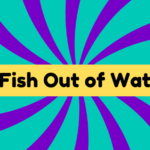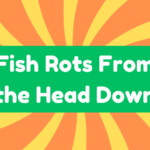The phrase "bigger fish to fry" emphasizes the importance of focusing on significant tasks over less critical ones. Originating in fishing culture, it signifies the need to prioritize large catches, which translates into modern contexts as prioritizing major goals. This concept reminds us that distractions can undermine productivity. In practical terms, it encourages people to identify what deserves their attention, thereby ignoring trivial matters. Despite being an age-old expression, it remains relevant in today's fast-paced world, helping individuals manage their responsibilities effectively. Understanding its implications may help clarify your own priorities moving forward.
Synonyms
In discussions of prioritization, the phrase "bigger fish to fry" conveys a clear message about focusing on more significant concerns. To emphasize the importance of this concept, several synonyms encapsulate the notion of redirecting attention toward larger goals and significant issues. Consider the following:
- More pressing matters
- Greater priorities
- Major concerns
These alternatives serve not merely as substitutes but as reminders of our tendency to become ensnared by trivial distractions. While it is essential to address smaller tasks, reliance on these synonyms beckons a critical engagement with the reality that innovation flourishes when we prioritize effectively. Ultimately, recognizing and articulating higher priorities fosters a productive environment conducive to achieving larger goals.
Example of Sentences
Understanding the various ways to articulate the concept of prioritizing larger concerns enhances effective communication. To illustrate this, consider these impactful examples:
- "This presentation is essential; I've got bigger fish to fry."
- "While the email is tempting, we must focus on our major tasks."
- "He declined the invitation, emphasizing other priorities."
These sentences encapsulate pragmatic decision making and effective prioritization strategies in both personal and professional settings. By dismissing distractions clearly, individuals can redirect their energies towards pressing matters. Ultimately, employing these examples fosters clarity and helps delineate boundaries when energy is limited. Readers should be cautious, though; neglecting minor details may come back to haunt us if significant aspects are overlooked in the pursuit of larger objectives.
Origin
Although the phrase "bigger fish to fry" has become a common idiom in modern discourse, its origins are rooted in the culture of fishing, where the size of the catch signifies importance. Historical usage traces back to John Ray in 1670, who noted "other fish to fry," highlighting how prioritization is fundamentally human. This idiomatic expression likely arose from the everyday reality of fishing communities, where the pursuit of larger, more valuable catches mattered most. Alternative references from John Evelyn and Peter Moteuix further anchor its roots in the fishing sphere. Over time, the phrase evolved, reflecting a shift from literal to figurative meaning, though it remains an indication of our ongoing struggle with priorities amidst trivial distractions.
Collocations
Collocations related to the phrase "bigger fish to fry" highlight its practical application in everyday language. These collocations serve to refine our understanding of prioritization, especially in contexts where bigger tasks and larger priorities vie for attention. Consider the following examples that evoke a sense of urgency and responsibility:
- "Neglecting smaller issues for larger priorities."
- "Shifting focus to bigger tasks on the agenda."
- "Dismissing trivial matters in favor of substantial goals."
Employing such collocations helps articulate the necessity of prioritizing more significant responsibilities. However, it's crucial to remain critical of habitual reliance on these phrases. Not every distraction is minor—recognizing which matters deserve attention can lead to an innovative approach in achieving genuine balance in our endeavors.
How to Use in Everyday Language
Incorporating the phrase "bigger fish to fry" into everyday language can greatly enhance communication by emphasizing priorities. This idiom serves as a reminder to focus on what truly matters, whether in casual conversations or professional settings. Using the phrase can help convey a clear message about shifting attention from minor distractions to significant tasks. For example, in discussions about project deadlines, responding with "I have bigger fish to fry" effectively communicates urgency and priorities. Yet, one must be cautious; overusing this phrase might diminish its impact. It's important to strike a balance, ensuring clarity without sounding dismissive. Ultimately, mastering this expression can aid in steering varied social interactions, reinforcing the importance of prioritization in a busy world.
Why Is It Still Relevant Today?
Given the rapid pace of modern life and the constant influx of demands on our attention, the phrase "bigger fish to fry" remains highly relevant today as a succinct representation of prioritization. Its persistent usage reflects the necessity to differentiate between essential and inconsequential tasks in a world overflowing with distractions.
| Modern Applications | Cultural Adaptations |
|---|---|
| Guides project management to maintain focus | Evolved from fishing to prioritize tasks |
| Helps individuals redefine personal boundaries while tackling responsibilities | Versatile expression in diverse professional environments |
| Encourages team efficiency by fostering task alignment | Used across generations, adapting to cultural nuances |
This idiom's enduring nature illustrates the need for prioritization in both personal and collective endeavors, making it a valuable tool in steering through contemporary challenges.







